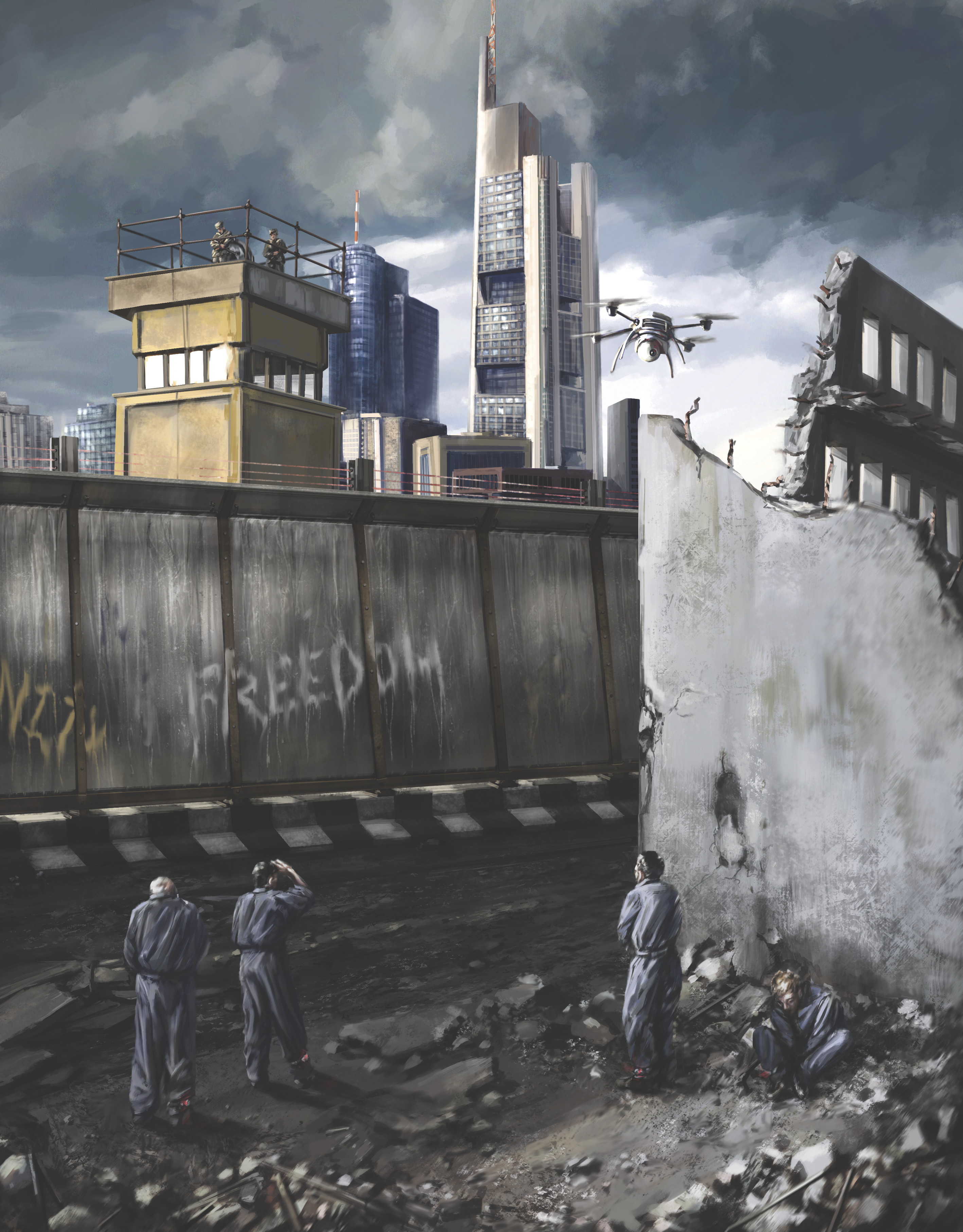From 1961 to 1989 Berlin was divided along the Berlin Wall, a barrier constructed by the German Democratic Republic. After weeks of mass protest Germany’s Communist rulers allowed gates along the Wall to be opened and East Berliners streamed through to the West. This is an extract from issue 25 of All About History where we spoke to historian Fred Taylor, author of The Berlin Wall” 13 August 1961 – 9 and Exorcising Hitler, about the potential consequences if the Berlin Wall never fell.
What if the Berlin Wall had never collapsed?
Basically you would have had something not dissimilar to North Korea. The only way it would have worked is through massive repression. I think for the wall not to have fallen, it would have, first of all, meant that we would have experienced a different Eastern Bloc than the one we had in the 1980s. They would have had to stop the reforms, Gorbachev particularly, and if that had taken place it would mean that the Cold War would have continued.

Can you envision a scenario where the Berlin Wall is still standing and East Germany, much like North Korea, still exists as a separate country?
It is very difficult to imagine this but, theoretically, I suppose they could have cracked down on dissent. There are a few reasons behind the fall of the Berlin Wall. The first, and most simple, is that the East German economy simply did not work. They had very few natural resources and terrible problems with inefficiency. Then, moving into the 1970s and 1980s, the Russians had stopped selling the East Germans cheap oil.
This caused more economic problems. There are pictures of East German shops from the 1960s and 1970s and then the 1980s… and they tried to make it look as if everything was wonderful, but there was not much to buy except a few turnips. Another thing that needs to be established is that by the 1970s they were also being loaned a lot of money from the West Germans, which they became very dependent on.
Then, of course, there is the Helsinki Accords, which the East cynically signed up to – but they could not really offer the freedoms that they had just promised. Nevertheless, they wanted the kudos of seeming forward thinking and freedom loving, albeit without paying any of the costs for that. Inevitably, though, over time, there were some brave people in East Germany who demanded the freedoms of the Helsinki Accords and, unless the authorities started to crack down on them, returning them to a Stalinist regime, it is difficult to see how the communists could have stayed in power.

So let us imagine they did go down the route of announcing a state of emergency, offering the Stasi complete control over law and order and thousands of people were imprisoned or murdered. We are back to the idea of East Germany as a contemporary North Korea. How would the wall have evolved?
Well it is interesting because the East Germans were actually quite good at basic electronics. They were skilled at putting together cheaper versions of Western electronics – and they had a plan to build a high-tech Berlin Wall, moving into the 1990s and the millennium, that would have all kinds of alarms so that you wouldn’t need armed guards. You would basically have an electronic surveillance system. However, while that was the goal, I don’t think they had the financial or logistical ability to achieve that.
If this high-tech version of the Berlin Wall had come into practice, how long can you envision East Germany hanging on?
No more than a few years after 1989. The huge sums they would need to spend in order to keep their new high-tech wall going would, I think, lead to the end in about 1995.
How would West Germany have benefited, if at all, from the continuation of East Germany?
In some ways it might have benefited West Germany to keep the East in business because it would result in more cheap labour. East Germany, from the 1960s onwards, was a place where Western manufacturers had their work done cheap. In West Germany, back when I lived there, you could get 24-hour film development done – straight from your camera – back in the days when you delivered it to a chemist. But they would actually ship it over the border to East Germany and ship it back again.
That was true of textiles and other businesses. So if I can imagine an East Germany, with this high-tech Berlin Wall still intact, I think it would be one that had basically become an economic colony of West Germany. It would have re-established a Stalinist regime to keep everybody quiet. The selling of political prisoners to the West was also an enormously profitable trade for the East, so that would probably have continued. In fact, there were rumours that they were arresting people just so they could make some income from that.
To read the full article purchase issue 25 of All About History at all good newsagents and supermarkets, online through the Imagine Shop and Great Digital Mags, or subscribe now and save 25% off the cover price.
